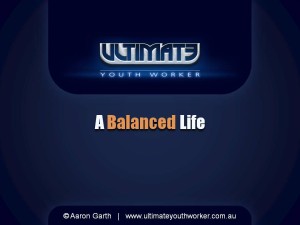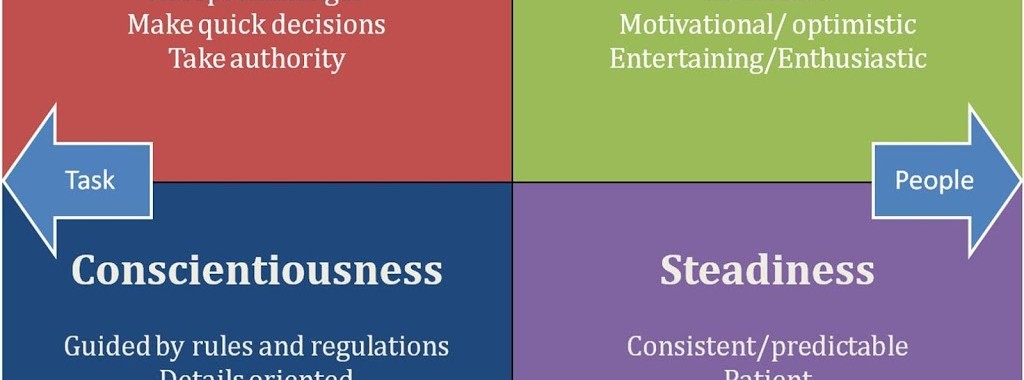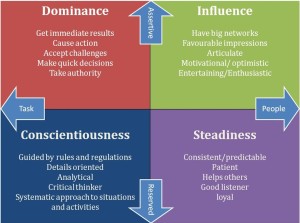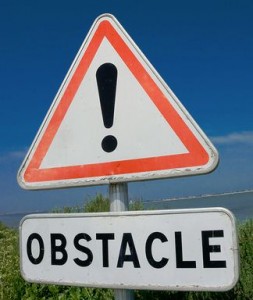Tag Archives: self care
Hard conversations are bread and butter for the average youth worker. I always love walking into a new youth work environment and seeing what the young people will try to shock me with. I remeber taking a volunteer into a residential care facility for her first meeting with a young person. On the driveway we meet a twelve year old boy who with a blank stare and an unwaivering voice asked if my volunteer was a lesbian, a paedophile or just a whore? My normal very assertive and chirpy volunteer turned white as Casper the friendly ghost and struggled to have a conversation for the next hour. I have often said to my volunteers, other youth workers and especially the young people that if they could tell me a story that would shock me I would be surprised. I often follow it up by saying that there is nothing they could ask me or share with me that would shock me enough to walk away…If there was I wouldn’t be in youth work!
My seeming inability to be shocked has grown through years of working with some of the most abused young people in Victoria. Whether young people in residential care, sexual abuse victims or children of prisoners I have heard stories that make my stomach churn. On the outside though I am calm and cool. It takes a lot of composure sometimes to stay calm when the stories are so in your face or you are being vilified by a twelve year old.
I remember speaking to a young woman earlier this year who had been through the wringer. Family issues, school issues, legal issues and to top it all off she was being pimped out by her uncle. After a conversation that lasted about half an hour she stated matter of factly “I’m a Slut…No one will love me!!!” My hard exterior almost broke. It took me a full minute to regain my composure. She continued to tell me how she had been her uncle’s ‘girl’ for almost two years and then how he had sold her to his friends. What really shook me was that she had just had her birthday.
Even the seemingly heartless stone cold dominant folk have a pulse. It may just be a little deeper than the rest. I was propper shook. I was able to hold it together enough to get back to my office then I was overcome by anger I couldn’t think straight, I was narky with everyone and I was ready to do some damage to someone. I knew I was in a bad way. Some days it just gets bad. I told my boss What had happened and that it was getting to me. My boss got me to call my external supervisor to tee up a time to catch up that week and then sent me home. I still wasnt great and when I got home I blew up at my wife over something trivial. It was not a good night for me.
My wife is a wonderful woman who is very intuitive and she quitely told me to get into my plan. I called one of my mentors, spent some time out for a walk and spent some time contemplating the future of my work with the young lady. Her words kept ringing in my ears “I’m a Slut…No one will love me!!!” How can we show love (genuine care and affection) to such broken young people??? How can we do it when all we want to do is take vengence for them?
First, centre yourself. Spend some time regaining balance. Look to your mental, emotional, physical and spiritual; and get some balance in life. The first rule in any form of rescue work or first aid is look after yourself and do not become a casualty yourself. Whilst dwelling on the situation breeds more interesting ways to cause pain to those who have hurt our young people, it also tears us apart.
Second, plan your next engagement. You have likely heard the most intense barrage you are going to hear. Now it is time to prepare yourself for your next encounter. Get ready to ask the questions you need to, spend time practicing with a supervisor or colleague and have a list of the other people or agencies you might want to refer the young person to.
I have been called a lot of things in my life and career, but it is when young people have lost hope in themselves and the world that gets under my skin. It does take a lot for me to get angry when people aim at me, but when they take on a young person my protective righteous anger boils to the top. To be the best I can be for my young people I can not let my feelings get in the way of good practice. Our emotions are important, but our control over them is critical. If we get antsy about a term like slut, or the story of abuse then our work is compromised. We must be aware of the effects of trauma on us and how to best deal with it in our own way. Looking after our young people means we need to have a thick skin…for their sake as much as ours.
Behavioural observation is the key to best practice youth work.
A few weeks ago we stated that we would look at how to develop a behavioural lensto inform how you work with young people and colleagues. A lens that will help you understand peoples strengths and weaknesses, how to speak to them in a way that will help you develop your relationship with them and ultimately strengthen your work with everyone you come across. This week we show you the framework.
A while ago I interviewed for a managementposition. One of my interviewers was someone that if I got the role I would supervise. In the interview I was able to answer the questions and got along well with two of the three interviewers. The third interviewer was a blank slate. I couldn’t read him at all. The worst part was that he was going to be my direct. I was freaking out and needed a way to break through their blank persona.
A few years earlier I was managing a youth drug andalcohol rehab. I had a young person come to us straight from jail with a personality bigger than Ben Hur. Everyone thought he was great, the life of the party. He was a lot of fun to work with, but he was also really frustrating. He never followed through on anything!!!
These are just two people and a snapshot of their behaviour, but I am sure you can all imagine people like this that you have come across. Before I was shown this simple but most important framework people showing these behaviours were extremely difficult for me to understand or work with. Afterwards, with a little work, I have become a better judge of character and supportive youth worker.
DISC
DISC is a quadrant behavioral model based on the work of Dr. William Moulton Marston (1893–1947) to examine the behavior of individuals in their environment or within a specific situation (otherwise known as environment). It therefore focuses on the styles and preferences of such behaviour. For most, these types are seen in shades of grey rather than black or white, and within that, there is an interplay of behaviors, otherwise known as blends. The determination of such blends starts with the primary (or stronger) type, followed by the secondary (or lesser) type, although all contribute more than just purely the strength of that “signal”. Having understood the differences between these blends makes it possible to integrate individual team members with less troubleshooting. In a typical team, there are varying degrees of compatibility, not just toward tasks but interpersonal relationships as well. However, when they are identified, energy can be spent on refining the results.
The four behavioural types are Dominance, Influence, Steadiness and Conscientiousness.
Those with Dominance and Influence behavioural types are more ASSERTIVE.
Those with Steadiness and Conscientiousness behavioural types are more RESERVED.
Those with Influence and Steadiness behavioural types are more PEOPLE focused.
Those with Dominance and Conscientiousness behavioural types are more TASK focused.
This graphic illustrates this more effectively.
Over the coming ‘Thursday Think Tanks’ we will delve more into these behavioural types and how they can help you to develop your emotional intelligence and practical wisdom.
In the meantime Stay Frosty!!!
Self care 101: There is no work life balance
Work life balance
I have just finished reading an article in the latest Journal of the Australian Association of Social Work. The article addresses that enigma that we all struggle to solve eventually in life, ‘how do I find a work life balance’? The article shows the results of a survey of 439 qualified social workers who had been asked questions around balancing work and family and the stress associated with this.
The results of this survey basically show that the pressures of work impact negatively on family life and create psychological strain on the individual and the family. Conversely, when the pressures of family life impact on work they create more psychological stress on the individual and decrease work effectiveness. It is a cycle that so many of us have fallen into; work pressures lead to pressure at home which leads to pressure at work which leads to pressures at home. Things start spiraling out of control and then some well meaning friend or colleague or our boss says something along the lines of “dude you need to get some work life balance!”
Unless it is an illness, new birth, death or an issue of other family members spiraling out of control rarely have the team at Ultimate Youth Worker seen the impact of family pressures on work. In fact we would be so bold as to say it is never that we spend so much time at home that our work is suffering!!! It is almost always that work is taking up the family time.
As a full-time youth worker doing 40+ hours a week, a Masters student out two nights a week for classes and studying most of the weekend, a member of the student union doing one night time activity per week and starting a new company; my wife pulled me up on my lack of family time at the beginning of the year. I was seeing my kids for a couple of hours a week aside from the crossing of our paths as we got ready for the day ahead. My wife would be asleep on the couch most nights by the time I got home and we rarely had any “us time”. I prioritised WORK over FAMILY. No work life balance there.
When I was called to account by my wife (Yes, even those of us striving to become ultimate youth workers argue with our wives at decibel levels that would shame any self respecting metal band) I was shocked. I hadn’t realised. My kids had an absent father and my wife was living like a single mum. I was unsure of what to do. Everything I was doing was important, wasn’t it? Important to the future of our family. If I worked longer hours I would support more vulnerable young people earning me a positive reputation in the field. If I gained my Masters it would open up doors for promotion and show that I had amazing knowledge. By supporting the student union I was supporting educational standards and building networks for the future. Everything I was doing was for a time just out of reach but right in my line of sight. If I worked harder now my life would be glorious in the future. The problem is the future never becomes the present. There is always another obstacle in the way of ultimate success. I had invested in my identity as a youth worker and pinned my hopes and dreams on a professional future whilst neglecting the present.
Work was going great but family was a mess. I spoke to some trusted friends and confidants and they all said I needed to drop some of my work priorities to balance my family priorities. I deferred my Masters for six months and sat back to see balance take hold. Unfortunately, I tipped further away from family. I got caught up in more committees through work, the student union and even went on a recruitment binge for more volunteers for my program at the behest of my boss. My work life balance was quite unbalanced.
You see, work expands so as to fill the time available for its completion, or so says Parkinson.
I had removed a work priority but I had not made family a priority, so work expanded to fill ‘the gap’.
What I began to realise was that I was looking at this all wrong. It’s not my fault!!! Someone gave me an equation that had incompatible data. They said:
Equal Time (with Family) + Equal Time (for work) = Balance in life
The problem is there is no balance!!! The data sets are totally incompatible. I might as well have said, buying a telescope + reading a book on hang gliding = qualified zoo keeper!!! Work and Family are two totally different concepts. They cannot be placed in a zero sum equation of balance. Balance assumes that they have equal weighting. As youth workers we strive to support our clients (placing weight on our work) and all to often it is at the detriment of our family (removing prioritised time). We all say family is important, but our actions show our families something different. In the article the authors recount that some social workers stated,
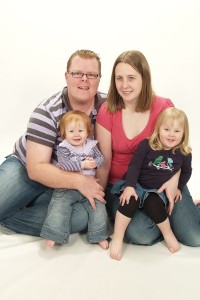 FULL DISCLOSURE: I haven’t been doing this long. I had always thought self care was all about me. If someone took your job away you would be sad, disappointed even angry. I Know, I have been fired from work that I loved without any notice. But, if someone took your family away you would become a wreck. A blubbering mess. How many divorces in our field could have been avoided by a good hard look at our prioritise? My wife and I are still together. More to do with her amazing heart than my skills and planning. She knew this stuff intrinsically. Family comes first!
FULL DISCLOSURE: I haven’t been doing this long. I had always thought self care was all about me. If someone took your job away you would be sad, disappointed even angry. I Know, I have been fired from work that I loved without any notice. But, if someone took your family away you would become a wreck. A blubbering mess. How many divorces in our field could have been avoided by a good hard look at our prioritise? My wife and I are still together. More to do with her amazing heart than my skills and planning. She knew this stuff intrinsically. Family comes first!
“when confronted with demands from work and home, their work commitments was given priority over family commitments” (pg 367).
Why do we do this??? Is it because we believe our family will understand the plight of the young people and will forgive us for missing time with them. If I had a dollar for every youth workers kid (including my own) I met that stated their parent was never around I could retire today.
But if there is no balance, I hear you say, then what do I do???
When you realise that the two concepts of family and work can never balance you can then prioritise action. Choose to put your family first. If you are married I know your vows didn’t say that you take ‘work’ for better or worse. Got kids??? I’m sure they miss your love and affection (I believe it builds good attachment, I think I read somewhere that that’s important???). Want to see them next Christmas??? Then make them your number one priority.
Work will always expand then to fit the remaining time available for it.
But what about my boss??? I can’t just stop going into work?? I need my paycheck? But I’m in ministry and I was called to do this? All valid thoughts!!! Whats your priority though??? I’m not saying quit your job!!! But, your paid for 38 hours… so do 38 hours. You have some high risk kids… put plans in place so you can switch your phone off on the weekend. Have you ever gone away on holiday??? Did the world end while you were gone??? Of course not!!! You put measures in place so that things worked without you. Be more effective in your work time so that it doesn’t spill over into family time.
If your family is your first priority then schedule your time with them. If you are down to finish at 5pm, schedule your arrival at home (If you are really gutsy you could even promise to be home at that time). Honour your commitment to your family. Schedule holidays and weekends away and kids soccer games and date nights with your partner. Then when you have prioritised your family life let work fill work time. I used to do a weekly calendar that began by blocking out Monday to Friday 9-5. I would fill it with Uni and meetings and all manner of other rubbish and my wife would ask when I would be around for the family!!!
Backward!!!
If family is your number one priority they get first dibs at your calendar.
 FULL DISCLOSURE: I haven’t been doing this long. I had always thought self care was all about me. If someone took your job away you would be sad, disappointed even angry. I Know, I have been fired from work that I loved without any notice. But, if someone took your family away you would become a wreck. A blubbering mess. How many divorces in our field could have been avoided by a good hard look at our prioritise? My wife and I are still together. More to do with her amazing heart than my skills and planning. She knew this stuff intrinsically. Family comes first!
FULL DISCLOSURE: I haven’t been doing this long. I had always thought self care was all about me. If someone took your job away you would be sad, disappointed even angry. I Know, I have been fired from work that I loved without any notice. But, if someone took your family away you would become a wreck. A blubbering mess. How many divorces in our field could have been avoided by a good hard look at our prioritise? My wife and I are still together. More to do with her amazing heart than my skills and planning. She knew this stuff intrinsically. Family comes first!I am still learning. I was out four nights last week and didn’t get to see my kids awake between Sunday and Friday. But I spent Friday night, Saturday and Sunday making up for it.
Do not aim for a work life balance. It is a false economy and one that will lead to a crash… and it won’t be at work. Invest in your family first and then work hard at your job during work hours. There will always be demands on your time and you will always spend more waking hours at work than at home. But if you prioritise your family first they will get the lions share of your attention and you will reap the rewards of a happy and fulfilled life.
P.S. to my friends in youth ministry. You can be more susceptible to putting work first than most others. I know as a church based youth worker in the early part of my career I was paid for 2 days a week and used to work in excess of 30 hours a week!!! That’s fine when you do not have a family. The excuse (and I believe it is and excuse. If you don’t then email me and we can chat) that, “I am in the ministry and that makes it OK to forsake my family for a time because I am just following God’s call on my life and they should support me in it” is preposterous. You married, had a family, they are your responsibility. They come before the ministry.
Reference
Parveen Kalliath, Mark Hughes & Peter Newcombe (2012): When Work and Family are in Conflict: Impact on Psychological Strain Experienced by Social Workers in Australia, Australian Social Work, 65:3, 355-371
What are your thoughts??? leave a comment or post a comment on facebook and twitter.
Self Care 101: Have a plan
Why is self care so important???
In a couple of words self care is important because of ‘Vicarious Trauma’. Within the work we do as youth workers we hear astonishing stories of things going wrong in our young peoples lives. We hear the stories of physical abuse at the hands of parent, sexual abuse at the hands of supposedly caring adults, of emotional abuse by families and school kids and we hear of the ongoing traumas that come with the adolescent storm and stress. These traumas affect everyone of our young people differently… and they also affect us. This is vicarious trauma. Vicarious trauma affects our self care.

Vicarious trauma affects most people slowly. It is the indifference at one of those stories of abuse. It is when a young person becomes just another client rather than a person in need. It is when you get home and yell at your wife because it is a Thursday. It can creep up on you and tear you to shreds. I worked as a family worker a few years back. My eldest daughter was about two and I was working with a young family who also had a two year old. That little girl and my own daughter had similar features and mannerisms and when her story of sexual abuse came to the fore I started to fold. My Wife (a Psychologist) saw me starting to fold and told me in her gentle and loving manner to get myself in order.
As a smart and well educated youth worker I did what I thought best and spoke to my supervisor about my struggles. My Supervisor was a caring social worker who in her best social work speak told me to not worry about it. I attempted to explain the gravity the situation was having on me to no avail. Her supervision was about as useful as a pair of board shorts in the arctic. I went to one of my mentors and he sympathised with my situation. He asked me one question that has always stuck in my mind. “do you have a self car plan”?
I had no idea what a self care plan looked like. I had never even hear of such a thing. First we looked at what a balanced life should entail. We then looked at how balanced my life was at the time. NOT VERY. We then looked at what activities I liked doing in these categories:
-
Physical
-
Mental
-
Emotional
-
And, Spiritual
We wrote a list of five things in each category that I would enjoy doing and that would help me to gain some balance. In the Physical category I had things like Hiking, going to the gym and having an awesome meal. In the Mental category I had ideas like reading a good book, doing sudoku and doing some studies. Emotional had spending time with my family, enjoying some time with my mates and seeing an external supervisor. Spiritual had go to church, pray and find my centre. Once that had been done the rest was pretty easy. Whenever I felt the pressure of the job getting to me I would choose an activity to do and i would touch base with my mentor to let him know what I had done.
Self care is pretty simple when you plan for it. What three activities could you do to take your mind off the stress of the world? Who are three people you can check in with on a regular basis to vent? If your boss sucks at supporting you through the stress you’re not alone. Touch base with us if you need someone. But don’t let another day go by without starting to plan for your care. If you are not on top of it how can you care for anyone else.


